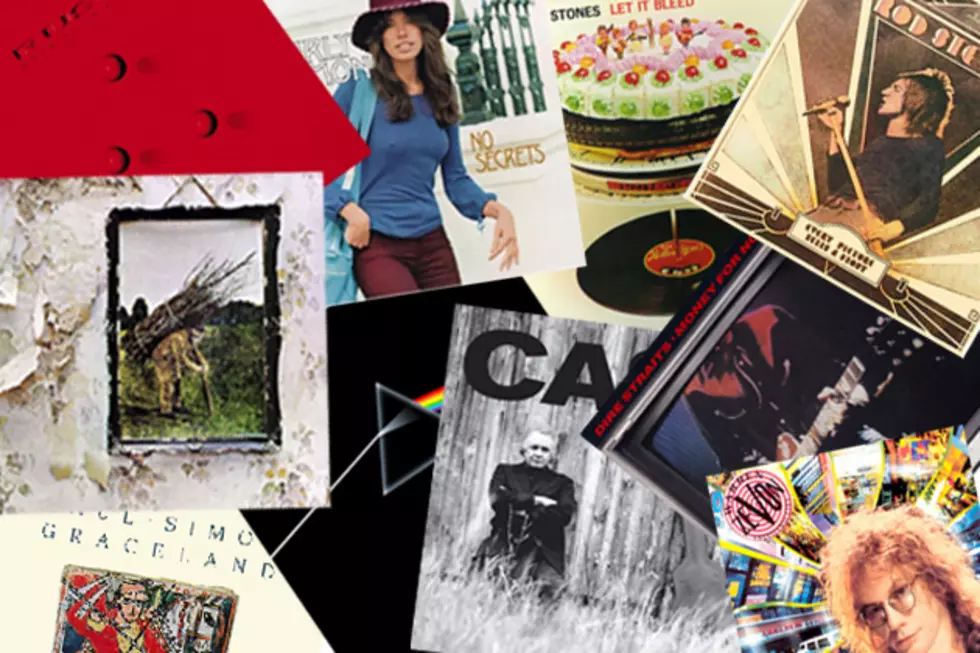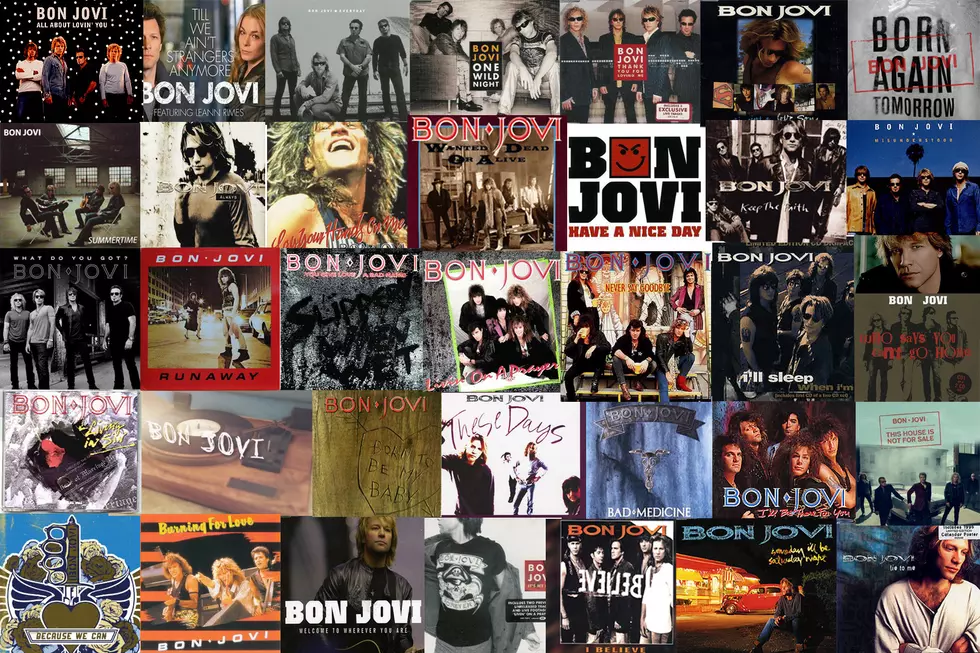
Top 10 Vocal Cameos
Morgan Neville's excellent documentary 20 Feet From Stardom took a look at the role the professional backup singer has played in rock music. Steeped in gospel music, these predominantly African-American women were frequently called into the studio or out on to the road any time an act wanted to bring a bit of the church into their sound.
Along the way, they were responsible for hooks on some of rock's greatest records – yet they often weren't credited. Unfortunately, when some tried to use their reputations to start a solo career, they were mostly unable to translate their vocal gifts into commercial success.
Countdowns like this one illustrate how unjust it all was. In a few notable cases, the guests on our list of the Top 10 vocal cameos were established stars making an appearance on someone else's record. In others, however, these same overlooked figures were featured.
Note that these aren't duets – we've already covered that – but rather moments where an equally distinctive voice was called upon to give the song a little something extra:
- 10
Aimee Mann
On: Rush's 'Time Stand Still' (1987)We begin our list of the Top 10 Vocal Cameos with a bit of an odd pairing. Eyebrows were raised when Aimee Mann, a darling of the New Wave for her hit "Voices Carry" with her band 'til Tuesday, joined forces with the reigning kings of prog rock. But Mann, who has gone on to record many excellent solo albums over the decades, sings the titular lyric and her harmony lines with Rush's Geddy Lee with aplomb, providing a bit of warmth for a band that was often derided for choosing precision over emotion.
- 9
Linda Ronstadt
On: Paul Simon's 'Under African Skies' (1985)Paul Simon's Graceland album introduced much of the world to the music of South Africa in the last few years of the apartheid era. And while the contributions by Ladysmith Black Mambazo and the other musicians received deserved praise and gave them a worldwide audience, Ronstadt's work on "Under African Skies" also stood out. The song's second verse was inspired by Ronstadt's childhood in Tuscon, Ariz.
- 8
Tom Petty
On: Johnny Cash's 'Sea of Heartbreak' (1997)Unchained, the second album Johnny Cash recorded during his mid-'90s comeback, offered producer Rick Rubin a chance to bring in Tom Petty and the Heartbreakers to serve as his backup band. The group stuck to their instruments for most of the record (because who needs other singers with Cash around?), before Petty stepped up on the chorus of Don Gibson's country classic and matched the Man in Black note-for-note. Twelve years later, Cash's daughter Rosanne Cash recorded a lovely version of the same song, with Bruce Springsteen crooning along.
- 7
Neil Young
On: Warren Zevon's 'Splendid Isolation' (1989)The synth-heavy science fiction-influenced Transverse City concept album wasn't a high point of Warren Zevon's career. But it contained one of his most beloved tunes in "Splendid Isolation." Neil Young, no stranger to telling people to leave him alone, contributes vocals and harmonica to the song.
- 6
Mick Jagger
On: Carly Simon's 'You're So Vain' (1972)He wasn't credited, but there's no mistaking the voice that doubles Simon's lead vocal in the chorus of her smash hit. In what could also be called the "Battle of the Dueling Lips," Mick Jagger's performance led many to speculate that the song was written about him – but Simon has always denied the rumor.
- 5
Claire Torry
On: Pink Floyd's 'The Great Gig In The Sky’ (1973)The second half of our list of the Top 10 Vocal Cameos begins with a wordless vocal that closes out the first side of The Dark Side of the Moon. For almost four minutes, Claire Torry wails against a Richard Wright chord progression, occasionally reaching stratospheric heights. She was paid only the standard rate for a session and sued Pink Floyd in 2004, claiming that her improvised part amounted to co-authorship of the song. A settlement was reached a year later that gave Torry co-credit.
- 4
Sandy Denny
On: Led Zeppelin's 'The Battle of Evermore' (1971)Sandy Denny was the lead singer in Fairport Convention, a band that electrified traditional British folk music just as the Byrds did for American folk. The group never achieved mainstream success, but Denny's haunting vocals wound up on one of the most popular albums of all time. "The Battle of Evermore" showed that she was more than capable of holding her own with Led Zeppelin's Robert Plant. Fairport Convention also launched the career of guitarist extraordinaire Richard Thompson.
- 3
Sting
On: Dire Straits' 'Money for Nothing' (1985)Mark Knopfler wrote "Money for Nothing" as a satire in the persona of a blue-collar guy watching MTV with disdain, so who better to drive home the point than one of the biggest stars on the music network? Sting contributed his distinctive voice throughout the song. When his coda of "I want my MTV" sounded too much like the Police's "Don't Stand So Close to Me," Knopfler gave Sting a co-writing credit.
- 2
Maggie Bell
On: Rod Stewart's 'Every Picture Tells a Story' (1971)If you didn't jump out of your seat the first time you heard Maggie Bell, in the persona of Shanghai Lil, claim that using birth control "just ain't natural," you probably weren't listening hard enough to "Every Picture Tells a Story." On the album of the same name, Bell is credited with providing "vocal abrasives." At the time, she was also the lead singer of Stone the Crows, a Scottish blues-rock band that included future Wings guitarist Jimmy McCulloch.
- 1
Merry Clayton
On: The Rolling Stones' 'Gimme Shelter' (1969)The highlight of the 2013 documentary 20 Feet From Stardom was when Merry Clayton tells the story of how she came to record her iconic part on "Gimme Shelter," which tops our list of the Top 10 Vocal Cameos. Clayton received a call from arranger Jack Nitzche just as she was getting ready for bed. Throwing on a coat and a scarf over her pajamas and hair curlers, she went down to the studio. In just a few takes, Clayton created one of the most chilling moments in rock history. The two times her voice breaks in her solo serve as a cry for sanity amid the turbulence of the late '60s. Oh, and she was also very pregnant during the session.
More From Ultimate Classic Rock









